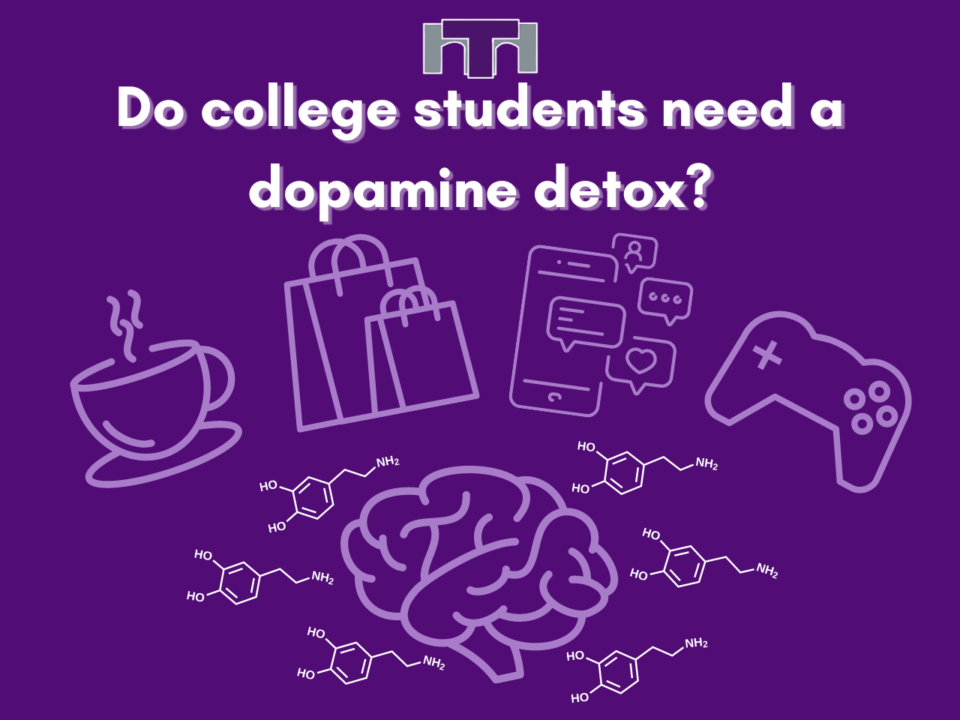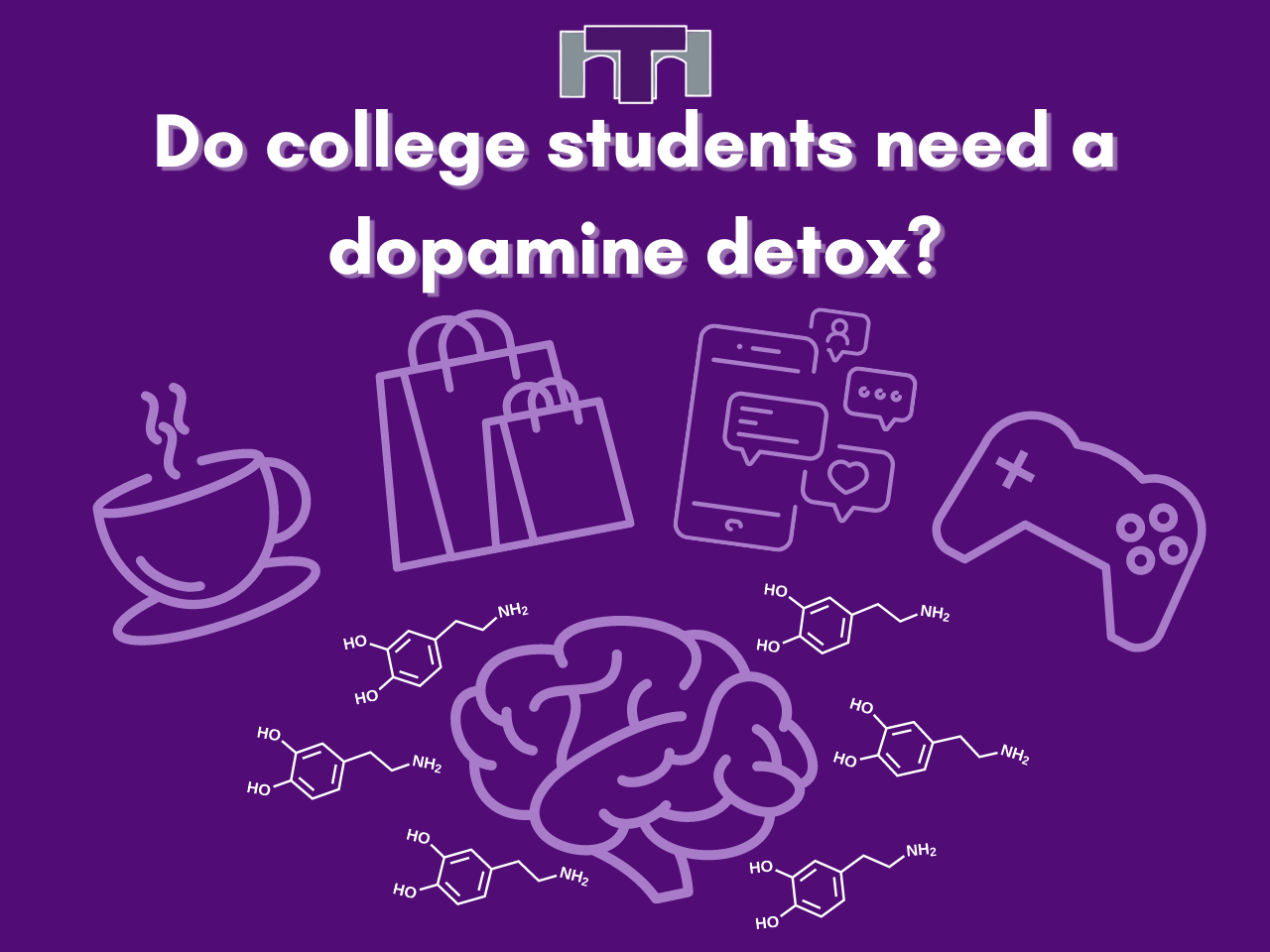
Social media, shopping, drinking coffee, video games and more are considered popular activities and pastimes for college students, but they are also some of the leading producers in the body’s dopamine levels.
Dopamine is often referred to as the “pleasure hormone.” When individuals do something that makes them feel good, the hormone provides a rush of excitement, giving a temporary feeling of motivation. The hormone is addictive, and once someone feels a rush of dopamine, they crave it more and more, according to the Nationwide Children’s Hospital.
While the excitatory nature of dopamine may feel great, too much can negatively affect one’s impulse control, emotional state and ability to think rationally. The damaging effects may make individuals struggle to perform hard or long-term tasks such as studying, reading or even sleeping.
College students may be the group most affected by high dopamine levels with 98% of their age being on social media, according to Experian. Social Media is a large contributor to dopamine production, as the scrolling platforms trigger the brain’s reward system.
With the current technological climate, the phrase “dopamine detox” is being increasingly discussed in the media.
A dopamine detox involves identifying dopamine-producing behaviors in one’s life and eliminating these habits for one to two weeks, according to Time Magazine.
Dante Williams, a doctoral intern at Counseling and Psychological Services at St. Thomas, agrees that a complete dopamine detox is unachievable despite the concept’s rising popularity.
“To run away from dopamine, due to how our brains work, it would go against our brains’ biology, so to speak,” Williams said.
Dopamine is a naturally-produced neurotransmitter, and is also immeasurable, making the concept of a detox very hard to quantify in terms of success.
“Shame can come because we are holding ourselves to expectations, and you can’t even see (the progress),” Williams said.
There are ways to cut down dopamine production and reduce the stimulus your brain may be dependent on without measuring an intangible hormone.
College students are heavily dependent on dopamine production beyond the brain’s natural output, which is why I believe this age group is not in need of a “dopamine detox,” but a “dopamine recalibration.”
To participate in a dopamine recalibration, students can limit caffeine consumption, take a break from Instagram or TikTok, reduce sugar intake, avoid video games and television or other activities they may consider bad habits for themselves.
A reset on your dopamine levels or poor habits is best when personalized to one’s own routine and can, in turn, benefit one’s mental health, enhance your focus, regulate mood and increase attention span and productivity.
Throughout my college experience, I’ve observed an increase in my friends’ — and even my own — attentiveness when we have engaged in activities that are less dopamine-reliant. Whenever we have hiked, engaged in conversation and cooked good meals, our attitudes have become more positive, and we have gained more motivation for trivial tasks.
At the very least, a “dopamine detox” can silence the thoughts in our heads for a moment and let us truly analyze how our technology-driven world affects our mental health.
Cecilia Wallace can be reached at wall1238@stthomas.edu.



